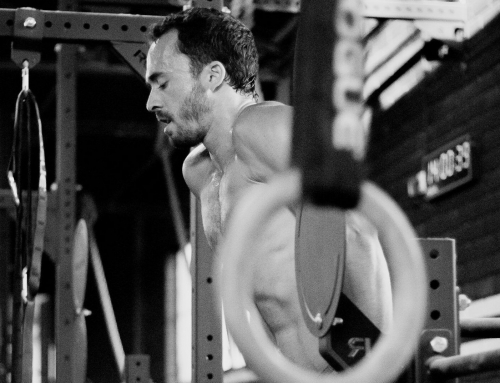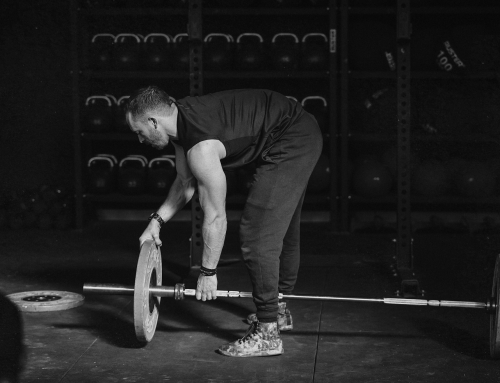Introducción
El objetivo de este estudio fue determinar los efectos de la ingestión de carbohidratos (CHO) y el contenido de glucógeno muscular, sin la influencia del conocimiento del consumo de CHO, sobre el rendimiento físico en los Sprint.
Método
Diez hombres entrenados, se sometieron a dos tipos de pruebas, en dos días diferentes. En el día 1 hicieron 2 series de 40 minutos de pedaleo en bici, seguido de 15 m de pedaleo con brazo en maquina tipo Kranking. Tuvieron dos tipos de dieta, una dieta alta en CHO (HCHO; 7 g/kg peso corporal) y otra baja (LCHO; 2 g/kg bw). El día 2 incluyerón una sesión de 60 minutos de ejercicio intermitente-Sprint (ISE) que consistió en 15 metros de sprint, cada minuto. Se hicieron biopsias musculares pre y post de las pruebas ISE del dia 2. Se examinó antes y después del ejercicio la contración máxima voluntaria (MVT), la activación voluntaria (VA) y las propiedades contráctiles fueron evaluadas durante las 15 contracciones isométricas máximas. También se obtuvieron el de la glucosa en sangre y el lactato, la frecuencia cardíaca (FC) y el índice de esfuerzo percibido (RPE) .
Resultados
El glucógeno muscular fué mayor en el Pre-ISE con HCHO en comparción con LCHO (597 ± 115 vs. 318 ± 72 mmol kg de peso en seco; P = 0,001). La distancia total y la distancia de recorrida fue mayor HCHO en comparaciín con LCHO 4,9 y un 8,1% mayor, respectivamente (p = 0,02-0,04). El pico MVT, VA, HR y el RPE no fueron diferentes entre los dos protocolos de hidratos de carbono (CHO) [P> 0,05]. La glucosa en sangre fue mayor pre-ISE en LCHO pero más baja después de la ISE en comparación con HCHO (P <0,05).
Conclusión
Estos resultados indican que una dieta alta en Hidratos de carbono HCHO mejora las intensidades del ejercicio durante el protocolo de Sprint (ISE). Debido al diseño del estudio, las intensidades del ejercicio parecen estar manipuladas ante perturbaciones periféricas asociadas con el contenido de CHO en vez de una consciente manipulación de las intensidades de ejercicio.
Referencias
-
Balsom PD, Gaitanos GC, Söderlund K, Ekblom B (1999a) High-intensity exercise and muscle glycogen availability in humans. Acta Physiol Scand 165:337–345PubMedCrossRefGoogle Scholar
-
Balsom PD, Wood K, Olsson P, Ekblom B (1999b) Carbohydrate intake and multiple sprint sports: with special reference to football (soccer). Int J Sports Med 20:48–52PubMedCrossRefGoogle Scholar
-
Bangsbo J, Norregaard J, Thorsoe F (1992) The effect of carbohydrate diet on intermittent exercise performance. Int J Sports Med 13:152–157PubMedCrossRefGoogle Scholar
-
Borg G (1982) Psychophysical bases of perceived exertion. Med Sci Sports Exerc 14:377–381PubMedGoogle Scholar
-
Burke L, Collier G, Davis PG, Fricker PA, Sanigorski AJ, Hargreaves M (1996) Muscle glycogen storage after prolonged exercise: effect of the frequency of carbohydrate feedings. Am J Clin Nutr 64:115–119PubMedGoogle Scholar
-
Burke L, Hawley JA, Schabort EJ, St Clair Gibson A, Mujika I, Noakes TD (2000) Carbohydrate loading failed to improve 100-km cycling performance in a placebo-controlled trial. J Appl Physiol 88:1284–1290PubMedGoogle Scholar
-
Burke L, Kiens B, Ivy JL (2004) Carbohydrate and fat for training and recovery. J Sports Sci 22:15–30PubMedCrossRefGoogle Scholar
-
Burke LM (1997) Nutrition for post-exercise recovery. Aust J Sports Med Sport 29:3–10Google Scholar
-
Casey A, Mann R, Banister K, Fox J, Morris PG, MacDonald IA, Greenhaff PL (2000) Effect of carbohydrate ingestion on glycogen resynthesis in human liver and skeletal muscle, measured by 13MRS. Am J Physiol Endocrinol Metab 278:E65–E75PubMedGoogle Scholar
-
Clark VR, Hopkins WG, Hawley JA, Burke JR (2000) Placebo effect of carbohydrate feedings during a 40-km cycling time trial. Med Sci Sports Exerc 32:1642–1647PubMedCrossRefGoogle Scholar
-
El-Sayed M, Balmer J, Rattu A (1997) Carbohydrate ingestion improves endurance performance during a 1 h simulated cycling time trial. J Sports Sci 15:223–230PubMedCrossRefGoogle Scholar
-
Fairchild TJ, Armstrong AA, Rao A, Liu H, Lawerence S, Fournier PA (2003) Glycogen synthesis in muscle fibers during active recovery from intense exercise. Med Sci Sports Exerc 35:595–602PubMedCrossRefGoogle Scholar
-
Gandevia SC, McKenzie DK (1988) Activation of humans muscles at short muscle lengths during maximal static efforts. J Physiol 407:599–613PubMedGoogle Scholar
-
Hargreaves M (2004) Muscle glycogen and metabolic regulation. Proc Nutr Soc 63:217–220PubMedCrossRefGoogle Scholar
-
Hargreaves M, Finn JP, Withers RT, Halbert JA, Scroop GC, Mackay M, Snow RJ, Carey MF (1997) Effect of muscle glycogen availability on maximal exercise performance. Eur J Appl Physiol 75:188–192CrossRefGoogle Scholar
-
Hawley JA, Palmer GS, Noakes TD (1997) Effects of 3 days of carbohydrate supplementation on muscle glycogen content and utilisation during a 1-h cycling performance. Eur J Appl Physiol 75:407–412CrossRefGoogle Scholar
-
Hulston CJ, Venables MC, Mann CH, Martin C, Philip A, Baar K, Jeukendrup AE (2010) Training with low muscle glycogen enhances fat metabolism in well-trained cyclists. Med Sci Sports Exerc 42:2046–2055PubMedCrossRefGoogle Scholar
-
Ivy JL, Goforth HW, Damon BM, McCauley TR, Parsons EC, Price TB (2002) Early postexercise muscle glycogen recovery is enhanced with a carbohydrate-protein supplement. J Appl Physiol 93:1337–1344PubMedGoogle Scholar
-
Ivy JL, Katz AL, Sherman WM, Coyle E (1988) Muscle glycogen synthesis after exercise: effect of time of carbohydrate ingestion. J Appl Physiol 64:1480–1485PubMedGoogle Scholar
-
Jeukendrup AE (2008) Nutrition requirements for athletes. In: Coulston AM, Boushey C (eds) Nutrition in the prevention and treatment of disease, 2nd edn. Academic Press, New York, pp 317–331
-
Johnson NA, Stannard SR, Chapman PG, Thompson MW (2006) Effect of altered pre-exercise carbohydrate availability on selection and perception of effort during prolonged cycling. Eur J Appl Physiol 98:62–70PubMedCrossRefGoogle Scholar
-
Keller C, Steensberg A, Pilegaard H, Osada T, Saltin B, Pedersen BK, Neufer PD (2001) Transcriptional activation of the IL-6 gene in human contracting skeletal muscle: influence of muscle glycogen content. FASEB J 15:2748–2750PubMedGoogle Scholar
-
Krustrup P, Mohr M, Steensberg A, Bencke J, Kjær M, Bangsbo J (2006) Muscle and blood metabolites during a soccer game: implications for sprint performance. Med Sci Sports Exerc 38:1165–1174PubMedCrossRefGoogle Scholar
-
Lambert EV, St Clair Gibson A, Noakes TD (2005) Complex systems model of fatigue: integrative homoeostatic control of peripheral physiological systems during exercise in humans. Br J Sports Med 39:52–62PubMedCrossRefGoogle Scholar
-
Marcora SM (2008) Do we really need a central governor to explain brain regulation of exercise performance? Eur J Appl Physiol 104:929–931PubMedCrossRefGoogle Scholar
-
Marcora SM (2009) Perception of effort during exercise is independent of afferent feedback from skeletal muscles, heart, and lungs. J Appl Physiol 106:2060–2062PubMedCrossRefGoogle Scholar
-
Merton PA (1954) Voluntary strength and fatigue. J Physiol 123:553–564PubMedGoogle Scholar
-
Nassif C, Ferreira APA, Gomes AG, De Martin Silva L, Garcia ES, Marino FE (2008) Double blind carbohydrate ingestion does not improve exercise duration in warm humid conditions. J Sci Med Sport 11:72–79PubMedCrossRefGoogle Scholar
-
Nicholas CW, Lakomy HKA, Phillips G, Nowitz A (1995) Influence of ingesting a carbohydrate-electrolyte capacity during intermittent, high-intensity shuttle running. J Sports Sci 13:283–290PubMedCrossRefGoogle Scholar
-
Noakes T, St Clair Gibson A, Lambert E (2004) From catastrophe to complexity: a novel model of integrative central neural regulation of effort and fatigue during exercise in humans. Br J Sports Med 38:511–514PubMedCrossRefGoogle Scholar
-
Rauch HGL, StClair Gibson A, Lambert EV, Noakes TD (2005) A signalling role for muscle glycogen in the regulation of pace during prolonged exercise. Br J Sports Med 39:34–38PubMedCrossRefGoogle Scholar
-
Saltin B (1973) Metabolic fundamentals in exercise. Med Sci Sports Exerc 5:137–146CrossRefGoogle Scholar
-
Symons JD, Jacobs I (1989) High-intensity exercise performance is not impaired by low intramuscular glycogen. Med Sci Sports Exerc 21:550–557PubMedGoogle Scholar
-
Tucker R, Noakes TD (2009) The physiological regulation of pacing strategy during exercise: a critical review. Br J Sports Med 43:e1
-
Van Loon LJC, Greenhaff PL, Constantin Teodosiu D, Saris WHM, Wagenmakers AJM (2001) The effects of increasing exercise intensity on muscle fuel utilisation in humans. J Physiol 536:295–304PubMedCrossRefGoogle Scholar
-
Walker JL, Heigenhauser GJF, Hultman E, Spriet LL (2000) Dietary carbohydrate, muscle glycogen content, and endurance performance in well-trained women. J Appl Physiol 88:2151–2158PubMedGoogle Scholar
-
Williams C, Brewer J, Walker M (1992) The effect of a high carbohydrate diet on running performance during a 30-km treadmill time trial. Eur J Appl Physiol 65:18–24CrossRefGoogle Scholar
-
Winnick JJ, Davis JM, Welsh RS, Carmichael MD, Murphy EA, Blackmon JA (2005) Carbohydrate feedings during team sport exercise preserve physical and CNS function. Med Sci Sports Exerc 37:306–315PubMedCrossRefGoogle Scholar
-
Yeo WK, Paton CS, Garnham AP, Burke LM, Carey AL, Hawley JA (2008) Skeletal muscle adaptation and performance responses to once a day versus twice every second day endurance training regimens. J Appl Physiol 105:1462–1470PubMedCrossRefGoogle Scholar




